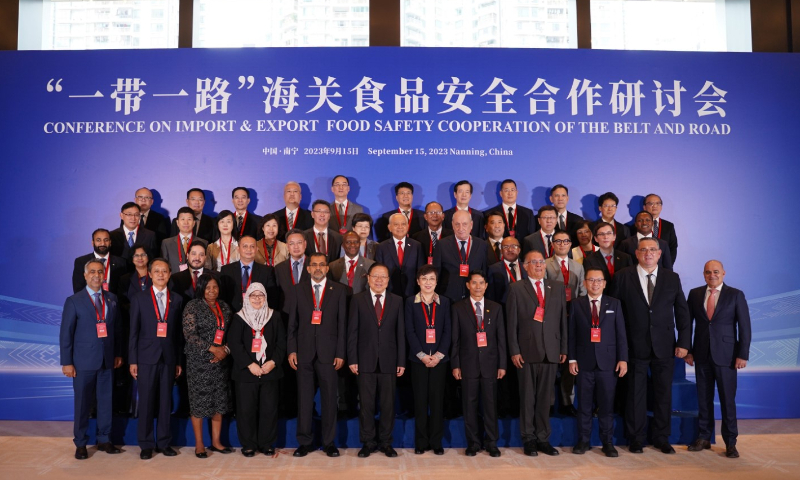In the first eight months of this year, China’s trade in food products with countries along the Belt and Road Initiative (BRI) reached 553.82 billion yuan ($76.10 billion), a 10.4 percent increase compared to the same period last year and a significant 162 percent increase compared to 2013, officials said at the first conference on import & export food safety cooperation of the Belt and Road, which was held in Nanning, South China’s Guangxi Zhuang Autonomous Region on Friday.
The meeting gathered over 100 representatives and officials of over 20 BRI countries.
Aimed at creating a new platform for international cooperation and governance in food safety among countries participating in the BRI, the meeting adopted a BRI food safety cooperation initiative to deepen pragmatic cooperation, share supervision experiences and promote the establishment of scientific and rational international rules and standards.
In recent years, China’s customs department has actively collaborated with BRI countries to improve food safety governance, and cooperation has expanded and diversified.
As of June this year, China has signed over 200 cooperation agreements related to the Belt and Road Initiative with 152 countries and 32 international organizations, leading to a significant increase in the variety and volume of food trade, Lü Weihong, deputy chief of the General Administration of Customs, said at the meeting.
Over the past decade, China has established customs inspection and quarantine cooperation with 171 countries and regions, signing nearly 400 international cooperation agreements on the access of agricultural and food products, Lü said.
As a result of closer cooperation between the customs authorities, an increasing number of unique and characteristic foods from BRI countries are entering the Chinese market.
Commercial Counselor of the Rwandan Embassy in China Samuel Abikunda said that products from Rwanda, such as coffee, tea and dried chili sauce, have successfully entered the Chinese market and have been warmly welcomed by Chinese consumers.
He said that Rwanda’s honey and other products are applying for market access, and that he is optimistic these products will soon be available to Chinese consumers.
Omani Minister of Agriculture, Fisheries and Water Resources Saud bin Hamood Al Habsi said that Oman and China have signed a memorandum of understanding on the export of aquatic products, which will strengthen business cooperation between Oman and Chinese companies.
He believed that this conference will encourage more countries to participate in discussions on food safety and quality, which is crucial for international trade.
In 2022, China’s trade in food products with BRI countries reached 786.31 billion yuan, up 135.3 percent compared to 2013.
(Global Times)




